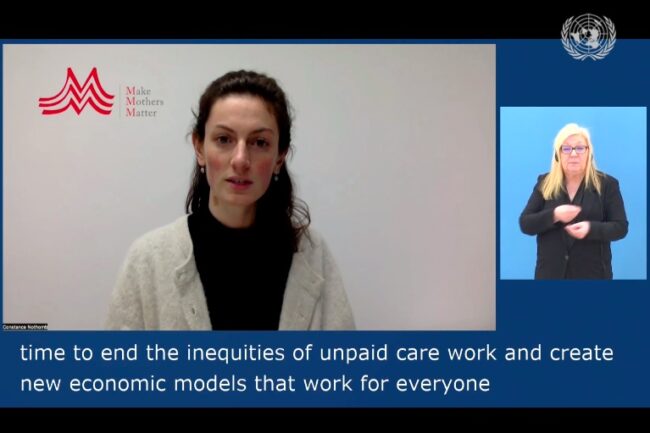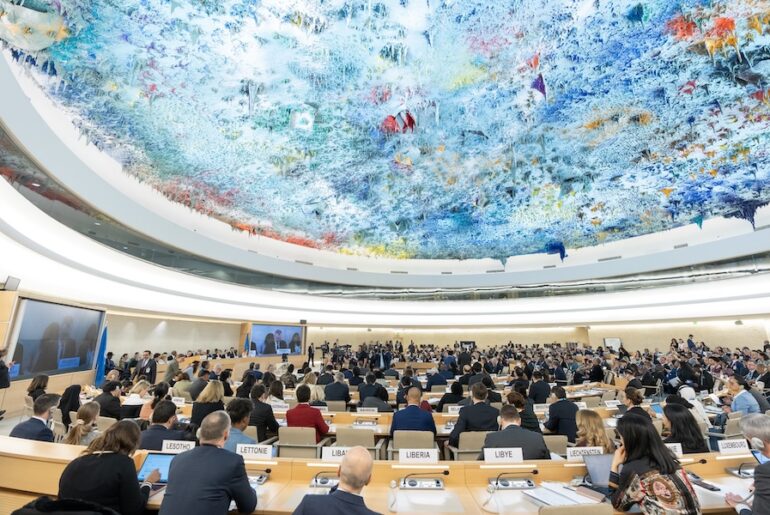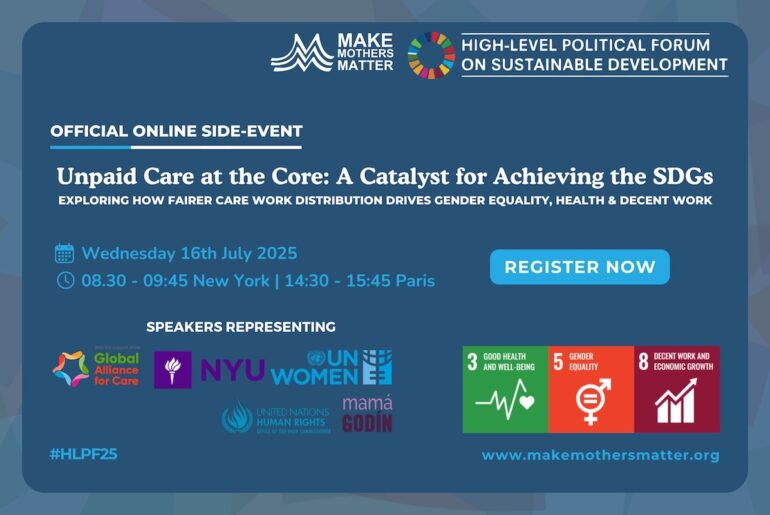Care at the heart of well-being and right to development
01.03.23
UN Geneva, Human Rights Council - At the meeting commemorating the 35th anniversary of the right to development, MMM reaffirmed the importance of care work, including mothers' unpaid care work, to this right. Its realization requires a transformation of our economic system so that it recognizes, values, and supports the work of caring for each other and for the planet.

The Right to Development is worth celebrating: its multi-dimensional nature and focus on well-being make it the perfect framework to protect human rights and realize the SDGs.
Unfortunately, today’s various crises still prevent its realization. Many of these, are deeply rooted in our current economic system.
This is why we at MMM argue it is high time to recognize the inadequacy of GDP as a measure of well-being and development, to move away from the growth mantra, and to understand that our economy should care for its people and planet, not prosper at their expense.
Care is a key word as it is at the heart of well-being. Economies depend on care work to survive and thrive. As we care for our children, we invest in the future.
The UN Secretary-General rightly emphasized this when he said: ‘The pandemic has shown us who is doing the work that really matters: nurses, teachers, care workers. As we recover, we need to remember this. It is time to end the inequities of unpaid care work and create new economic models that work for everyone’.
That our current economic system does not factor in unpaid care work is the cause of much economic hardship and injustice for women, especially mothers.
Development is understood as a comprehensive process aiming to improve the population’s health and happiness. An equipped economic system should thus recognize, value, and support the work of caring for each other and for the planet.
Let’s follow the example of governments such as Finland, Iceland, New Zealand, Scotland, and Wales, which are already transforming into well-being economies. Let’s encourage similar initiatives at the local level.
Our call today is for Member States to collectively ‘move beyond GDP’ and put this issue on the UN agenda as a step forward to the realisation of the right to development.
MMM Oral Statement for download
Constance Nothomb, one of our representatives to the United Nations in Geneva, delivered this Statement at the High-level meeting commemorating the 35th Anniversary of the Right to Development during the 52nd Session of the Human Rights Council.
Envisioning care as a common thread to global crises
29.07.24
UN New York - Our virtual HLPF side-event brought together experts to shed light on how the various global crises we face (in particular climate change and other environmental crises,
We call for multi-stakeholder approach to recognise and support unpaid care work
21.07.24
UN New York - Participating in the meeting of the UN Economic and Social Council (ECOSOC) on care and support systems, MMM reaffirmed the principle of co-responsibility, which should underpin
The New EU Gender Equality Roadmap : A Call for Inclusion of Mothers
04.03.25
The European Commission’s initiative on a new Gender Equality Roadmap post-2025, marks a significant step forward in addressing gender disparities across the European Union. Make Mothers Matter (MMM








